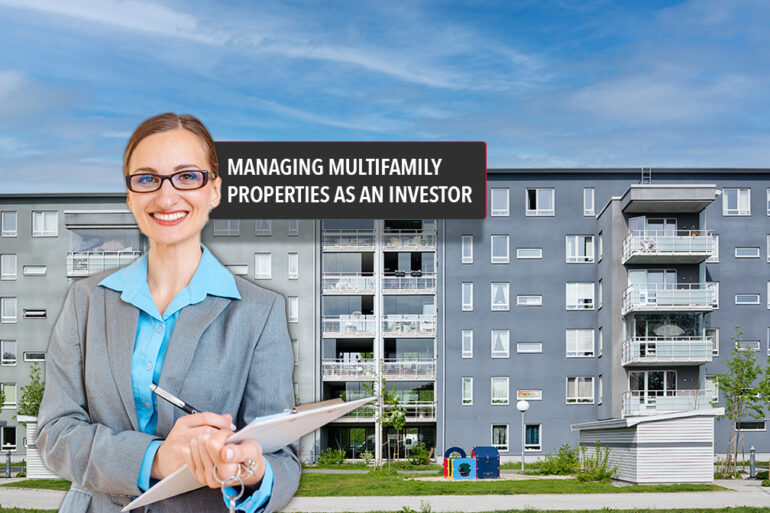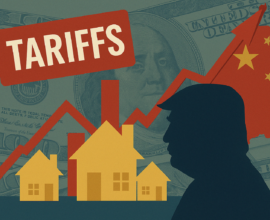Managing Your Own Multifamily Properties as an Investor
Acquiring multifamily properties for investment requires diligence and hard work. But that is just the beginning — how you handle managing multifamily rental complexes makes the difference between success and failure.
Whether you have invested in a 100-door apartment complex or a 4-plex, there are some key management requirements to follow if you want to remain profitable.
1. Maintenance Should Be a Priority
One of the most common reasons why tenants do not renew their lease is that management does not look after the property. These tenants will also spread the word around, making it difficult for you to lease the property.
Besides the landlord-tenant law that requires you to keep the property safe and livable, it is highly recommended that you be proactive with maintenance. For an apartment building or a small multifamily residence, ensure that the hired worker(s) regularly clean up the trash and litter around the dumpsters, keep the surrounding landscape meticulous and the grass well-manicured, and re-staple all loose carpets in the hallways.
In addition, the owner has to make sure that all the plumbing issues are taken care of and there is fresh paint (both inside and outdoors) every five to seven years. In general, tenants do not like to reside in a property that is roach-infested or has poor aesthetics.
2. Keep Tenants Happy
Next to maintenance, you must go out of your way to keep the tenants happy. If the tenants are not happy, you will have a constant turnover of renters, which will undermine your profits because of ongoing vacancies. Create a solid legal contract, establish rules for all tenants, and enforce those rules.
If one tenant does not pick up his pet’s poop, warn the tenant that there will not be a second chance. If there is a repair to be done, do not delay it. If there is a delay in the repair, communicate with the tenant. If the tenant is aware that you are doing your best to get the repairs done ASAP, they will remain satisfied and be less likely to complain.
3. Follow Landlord-Tenant Laws
Many issues among tenants start when the multifamily property owner fails to follow the landlord-tenant laws. In almost every state, the laws clearly favor tenants, so the onus is on you to know what the legal facts are regarding tenants.
By knowing the law, you will not only have a good foundation for how to run your investment but you will make fewer mistakes that lead to conflicts. For example, you should know how much of a security deposit you can collect and when you are supposed to return it, when you can evict a tenant, and the process of eviction.
Besides knowing the local county laws, you also need to be familiar with statewide laws that govern landlord-tenant relationships.
4. Hire a Property Manager for a Large Apartment Complex
If this is your first large investment property and you have another job or are busy, the best solution is to get a reputable property manager. Managing an apartment rental property requires long hours and is exhaustive and demanding work.
Hiring a property manager will relieve you of the stress and the workload. You can even consider hiring a property manager for select work like collecting the monthly rent, restoring the property after a tenant leaves, and/or handling the maintenance and repairs.
The downside is that good property managers do not come cheap, and the salary can eat into your profits. Keep in mind that some terrible property managers can completely destroy your property and its reputation.
5. Hire an Accountant to Run the Books
One area where investors run into problems year after year is with the taxes on the property. The IRS waits for no one, and it is vital that you pay the taxes on time or you will face huge monetary penalties.
Because multifamily investment properties usually have many expenses, a significant number of them can be deducted from annual taxes. It is best to hire an accountant who is familiar with real estate taxes and knows what can be deducted and what cannot. The last thing you want to face is the wrath of the IRS.
6. Know What the Tenants Want
Different tenants want different things in a rental property. The place should be safe for limited mobility and elderly tenants (have grip bars in bathrooms, high profile toilets, and adequate lighting). College students may want a place with ample storage space for their bicycles and sporting equipment, free WiFi, and some basic furniture. Families may want a place with a playground, a countertop in the kitchen, and an open area for a barbecue.
The key is to outfit your property with the needs of the demographics seeking a rental. If you offer the right amenities, you will attract long-term renters.
7. Be Cordial
Even though this may seem like a no-brainer, property owners and managers often come across as aloof and unfriendly. In today’s world of business, this is one way to lose long-term tenants.
Even though you need to keep the tenant-landlord relationship professional, keep it cordial and amiable too. Just greeting them and asking them how things are is all you have to do. Being friendly also helps develop a bond of trust.
8. Lease Renewal
When it comes to lease renewal, you need to be proactive and start at least two to three months ahead of time. Bring up the topic of lease renewal and let the tenant know you would prefer they stay and that their business is valued. If they decide to vacate, the few extra months give you ample time to look for new tenants.
9. Keep Tenants Aware
Tenants do not like major inconveniences about where they are living. If you are going to have any repairs made, roads paved, buildings painted, or the pool cleaned, let the tenants know ahead of time. In fact, keep tenants informed of all news on a weekly or monthly basis.
Send out an email and let them know what is happening in and around the property — they will appreciate it. If you know of these repairs months before, why only give them the minimum legally required 24-hour notice?
10. Be Proactive
Whether you rent a duplex or operate a multifamily complex, be proactive when it comes to maintenance and care of the place. Regularly inspect the units for potential issues and speak to the tenants if there are any potential problems.
You should be making repairs before they become a major issue. Someone living in the unit will quickly be able to answer serious red flag questions like “Do you ever hear what you think are squirrels in the attic?”
11. Have a Reserve Fund
Untimely emergencies often crop up in any real estate investment, especially large apartments. The roof may develop a leak, the appliances may break, or some tenants may suddenly decide to break the lease and leave.
In such scenarios, it is important to have a reserve fund for the repairs and to keep you going until you find new tenants. Save at least 5-10% of the rent for creating a reserve fund and you will be able to sleep well every night.
12. Go High Tech
Today there are many software programs available that enable landlords to not only communicate with tenants but automatically collect rent every month, keep track of all maintenance requests, schedule recurring inspections ahead of time, and send out memos, notices, and reminders.
The software can be accessed from any location by you and your team, and it will help you run the property efficiently. Some great software includes platforms like Yardi Voyager, Entrata, Rent Manager, Buildium, and many more.
Manage Multifamily Properties the Right Way from the Start
Managing a small residential investment property is not that difficult, but multifamily units or large apartment complexes do require work and effort. Treat your tenants just the way you like to be treated — be approachable, friendly, and responsive. Make sure you have a very clear set of plans and goals for the property (short and long term) and stick to them.
Sticking to a plan is the only way to succeed with multifamily properties. Don’t find out the hard way that is advice you can bank on!







